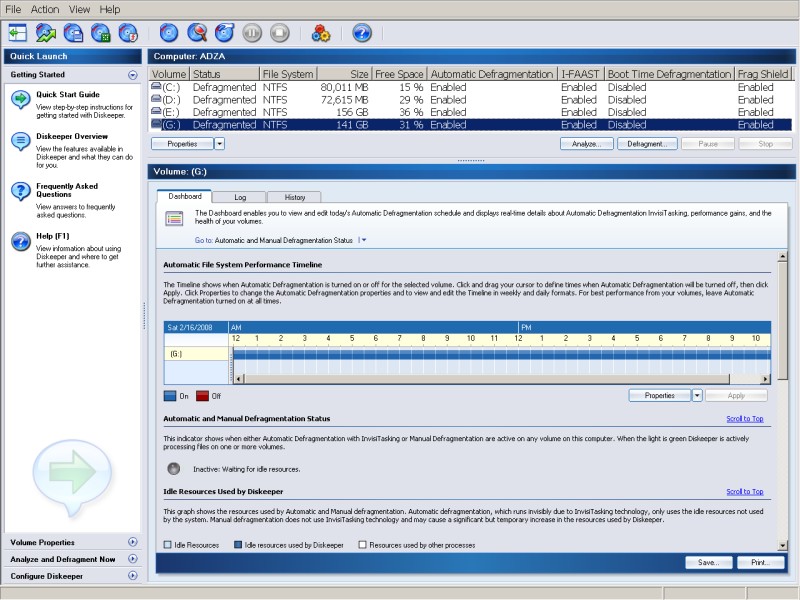

You could speed up that drive and you’d never notice a difference.Īny performance gains achieved by defragging only matter if two things are true: If your external drive is nothing more than a backup drive where you occasionally store copies of files or baclup image files, you’re not really using the drive in a way where performance would even matter most of the time. That puts the speed of the hard disk at best on a par with the speed of the interface.Īll that is to say that when it all comes down to it, speeding up the hard disk connected via an external interface is unlikely to show significant performance improvement.īut there’s one more argument against it. Maximum speed is, in practice, never achieved. Before we even start, the USB 2 interface is close to half the hard disk speed we’re dealing with.īut even with USB 3, 640MBps is the maximum speed, and it’s affected by many, many things, ranging from the quality of the hardware and cables to the speed of the circuitry at either end, as well as any competition for the bandwidth by other USB devices on the same interface. While hard drive transfer rates are complex to calculate and nearly impossible to predict, a fine and extremely ballpark number we can use is 100MBps 2. USB 2 is supposed to be able to transfer data at up to 60 megabytes per second (MBps) 1. Even assuming you’re running the faster USB 3 interface, it may still be slower than the hard disk inside the external enclosure. USB 2, for example, is significantly slower than USB 3. External performanceīy far the biggest impact on external drive performance is the speed of the interface used.
STOP DISKKEEPER 2011 DEFRAG REMOVABLE DRIVES WINDOWS
Since version 7, by default Windows handles this for you automatically, once a week.Įxternal drives, however, present a different problem. Thus, it’s important that internal drives be defragmented periodically, particularly the drive from which you run Windows and/or store the data you access frequently. (Defragging doesn’t apply to solid state drives because there is no performance penalty based on the location of data on the media.)

The second part of a file will follow the first, for example, rather than being on some other random place on the disk that takes more time to access. A defrag operation simply moves the files and file-parts around on the hard disk’s surface so they’re physically closer to one another. The primary reason to defragment or “ defrag” a disk drive is performance. The more important question is that, even with “92%” fragmentation, should you even be bothering? While there are alternatives, you’re doing it right Defraggler is a fine program to use.


 0 kommentar(er)
0 kommentar(er)
